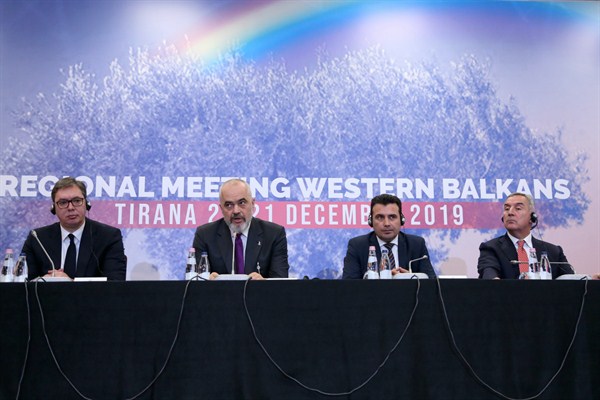It was supposed to be a landmark year for the Balkans. In 2019, the European Union was due to give the green light to accession talks with Albania and what is now called North Macedonia. In Serbia, meanwhile, President Aleksandar Vucic saw a rare window for a lasting peace deal with Kosovo, 20 years after the war that led to Kosovo’s independence.
Yet because of a de facto veto by French President Emmanuel Macron at an EU summit back in October, the Balkans now looks as far from a European embrace as it has for years. At that summit in Luxembourg, France stood alone in blocking the start of formal EU membership negotiations with North Macedonia, while only Denmark and the Netherlands joined it in rejecting similar talks with Albania.
Macron made two arguments in justifying his decision. First, the EU needs to reform and strengthen its institutions before expanding further. Second, the EU’s current enlargement process is flawed and hasn’t prevented democratic backsliding in new member states. While both points are widely accepted within the EU, the decision to block even the beginning of the long and drawn-out process of membership negotiations was badly received across Europe, from the Balkans to Brussels. North Macedonia and Albania may still eventually get the go-ahead this year, but there is a growing sense of unease in the region, which faces a slew of internal problems.

